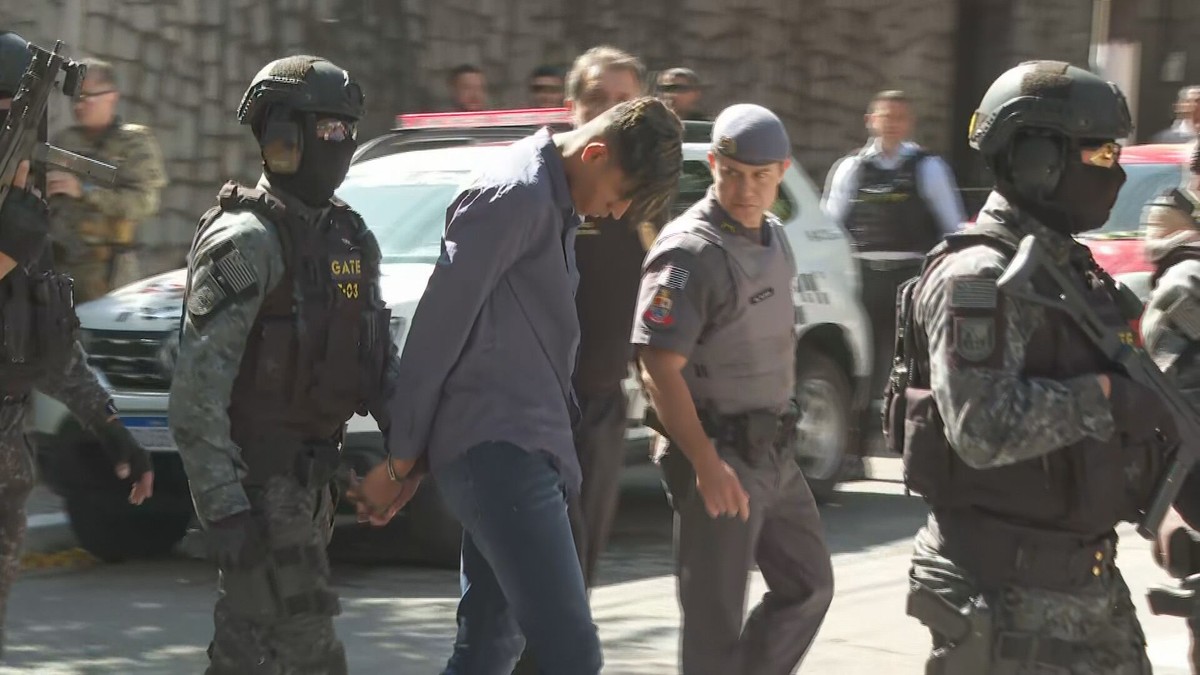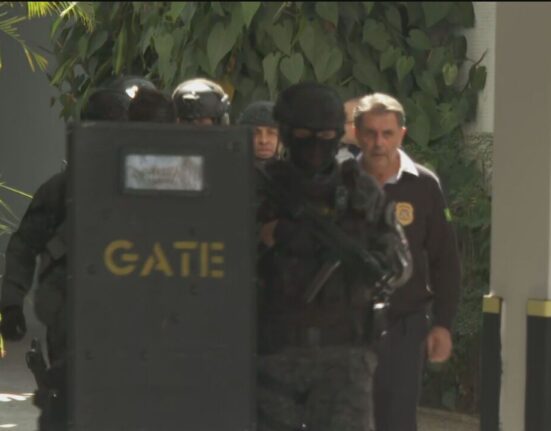A tragic incident unfolded in Matão, Brazil, as a 67-year-old man, Walter Ribeiro dos Santos, was arrested by the police for the murder of his 91-year-old mother, Deodata de Almeida Santos. The chilling crime occurred on a Sunday night, sending shockwaves through the quiet town.
Reports from the scene reveal a disturbing narrative. The suspect was allegedly in a state of mental distress, claiming to law enforcement officers that he believed his mother posed a threat to him. This led to the harrowing outcome that saw a son taking the life of his own mother.
As details emerged, it became apparent that the incident took place in broad daylight around 6 p.m. A concerned neighbor alerted authorities after witnessing Santos brandishing weapons outside his residence and confessing to the ghastly act. It was a scene of unimaginable horror as neighbors grappled with the reality unfolding before their eyes.
Upon police intervention, Walter was found sitting on the sidewalk with tools in hand. Ignoring commands to drop his weapons, he had to be forcibly disarmed by responding officers. Inside the house awaited a heartbreaking sight – Deodata lay on the living room floor, gravely injured and struggling for breath. The extent of her injuries painted a grim picture of violence and tragedy.
Medical response teams swiftly intervened, attempting to stabilize Deodata’s condition before rushing her to the nearest hospital. Despite their best efforts, she tragically succumbed to her injuries upon arrival at the emergency room. The community mourned as news of this senseless act reverberated through Matão.
Law enforcement officials wasted no time in launching an investigation into what is now classified as a homicide case. Forensic experts meticulously combed through the crime scene for evidence while preparing reports crucial for legal proceedings ahead. In due course, Santos will face trial and be transferred to Santa Ernestina prison pending further judicial processes.
The sheer brutality and emotional weight of such incidents leave communities reeling as they struggle to come to terms with domestic tragedies turned deadly. As authorities work towards justice for Deodata de Almeida Santos and closure for those affected by her untimely passing, questions linger about what drives individuals to commit such unfathomable acts within their own families.
In times like these, it is essential not only to seek accountability but also introspection as society grapples with issues surrounding mental health support systems and avenues for intervention before irreparable harm occurs. Tragedies like these serve as stark reminders of how fragile human relationships can be and underscore the pressing need for empathy and understanding within our communities.









Leave feedback about this